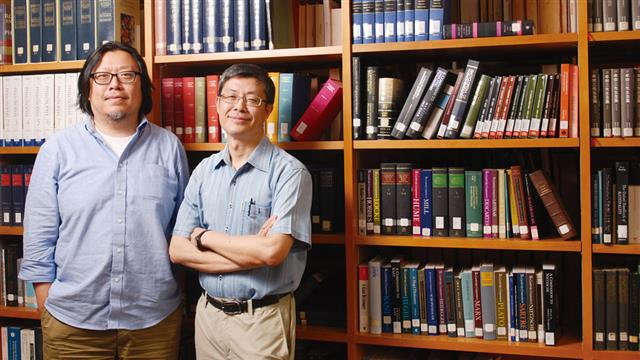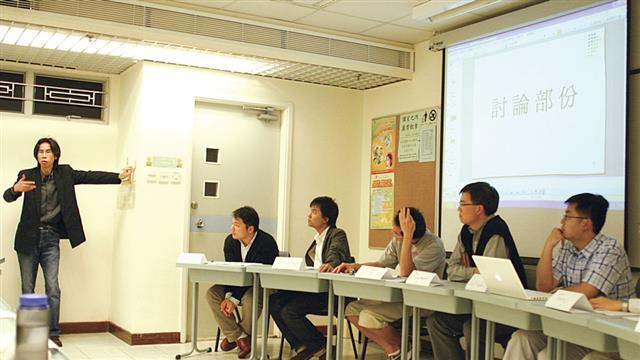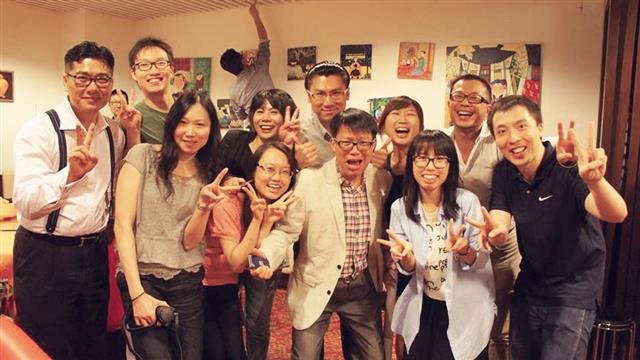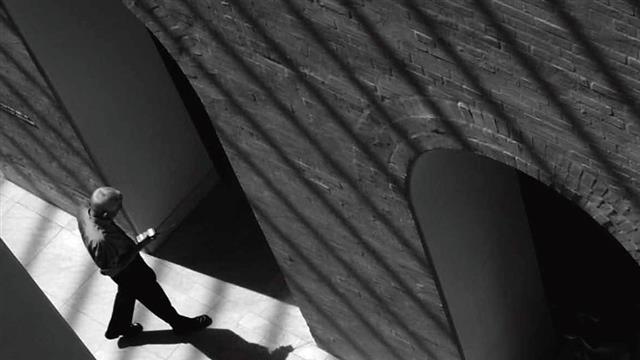At 10 p.m. on the University campus, a bunch of middle-agers were debating Heidegger’s Being and Time as they sauntered down the shadowy path to the train station. You may mistake them for university professors, but they are students who had just finished their MA Programme in Philosophy class.
During the day, they may be architects, librarians, film directors, poets, doctors, social workers, or designers. Curiously, these mature students, whose average age was 35, would pay for an in-service course seemingly irrelevant to their career advancement. What’s even more bizarre is that this part-time programme is taught mostly by full-time veteran professors from the Department of Philosophy. After a day of teaching, doing research, and attending meetings, they have to hold out for another three hours at night. It should have worn them out, but the professors had no intention of dismissing the class until long past9:30 p.m., not noticing the janitor who is tapping her watch with her finger by the door.
Philosophy Proves Popular
It was 10 years ago that Prof. Lau Kwok-ying, programme director of the MA programme, offered Hong Kong’s first postgraduate qualification in philosophy by course work rather than research. Although Hong Kong is often regarded as a utilitarian and success-oriented society, Professor Lau noticed quite a few people have keen interest in philosophy. ‘We have a clear aim that the MA is for those who did not study philosophy for their first degrees and who do not intend to pursue a postgraduate research programme. They may lack a solid foundation in philosophy, but have a strong passion for the subject.’ In 2004 when the programme was first open to application, he was surprised that it attracted 200 applicants for just40 places. ‘Someone told me afterwards, “I have been waiting for four, five years. Finally you offer the course!”’
Prof. Cheng Chung-yi, chairman of the Department of Philosophy, teaches Chinese Philosophy in the programme. In his class designed for 40 people, 120 turned up. ‘The MA students, even after they graduated, keep watching out for new courses, or new syllabi in recurrent courses. They would recommend their wives, friends, and workmates to sit in. Retiree students would go the extra mile to sit in on day-time classes.’ It is said that an ardent fan of Professor Cheng has shown up in every one of his day-time classes during the past three years. Incredibly, some students change their work hours to part-time, or quit their jobs altogether, just to make time for sitting in on day-time philosophy classes.
Ms. Donna Mo works in the advertising industry and has a bachelor’s degree in journalism. On one occasion, she went to a book club with her friend from the CUHK Department of Philosophy. There she heard the names of many contemporary philosophers and their schools of thought, and she was fascinated. ‘At that time I had fuzzy feelings about my job and society. I saw philosophy could help me make sense of the complex world, to disentangle the skein of my thought.’ Now she is in the second year of the programme and she is seeing the world through a different lens. ‘It is a much wider view, and I have learned to think critically and be more assertive. Fortunately, it also opens my mind to accepting differences and diversity.’
The Use of Uselessness
At a time when science and technology is dominant, it is easy to dismiss the discipline of philosophy as obsolete. Even Stephen Hawking argues that philosophy is dead. But Professor Lau believed the discipline can help people face the world with a clear head. ‘Studying philosophy prevents us from losing our head in the confusion. Hong Kong’s political future, social transformation, social justice, these would never be addressed in occupational disciplines, and Hong Kong people tend to avoid debating about that. As a result, when a crisis looms ahead, they don't know what to do. Without thinking about and discussing the problem, you will never know how to deal with it, or may fail to notice you are being manipulated. This results from not knowing philosophy.’
Who am I? Why am I here? Where am I going? These big questions have been debated over thousands of years and remain unresolved. So what is the purpose of fighting in class over questions to which no one knows the answers? Professor Cheng said it is not about reaching any conclusion so much as becoming involved in discussion. ‘You benefit from improving yourself, from learning to develop rigour in argument, to state your reasons clearly, to persuade and be persuaded. It is true that the questions may have no conclusive answers for millennia, or what you know today will be overturned by what you know tomorrow. But it doesn't matter at all, as long as I hold the fruit of my own thinking at every moment. Yesterday I arrived at an answer I felt content with; today I find one that makes me even more content.’
Love of Wisdom
Philosophy is sometimes seen as an obscure discipline, but Professor Cheng asserted that no discipline in the world would ever dare cast itself as more important than philosophy. ‘If a doctor attempts to say medicine is more important, as without medicine you will die, I would refute that without philosophy you will also die a spiritual death!’ He believes studying philosophy gives one a ‘ticket to the world of wisdom’. ‘Reading the works of the great thinkers is like acquiring all kinds of weapons, with which you can cut any complicated question into addressable parts. Take Scotland’s referendum as an example. If we consider the problem by employing “social and political philosophy”, then the first thing we need to think is what conditions would establish the case of a “nation” determining her own fate; or otherwise the independence referendum would actually be splitting the nation apart. Using thinking tools to see beyond illusions is the benefit of getting that “ticket” with which you can appreciate the great minds of all time and face the myriad facets of life.’
More than a tool for reasoning and debating, philosophy also breeds friendship and companionship. Professor Lau said it has been 20 years since he returned from France to teach at the Department of Philosophy, and he is still very fond of the place. ‘Back then when I was a philosophy student in Chung Chi College, we were close to our teachers, like Prof. Ho Hsiu-hwang, Prof. Lao Sze-kwang, Prof. Chen Te, and Prof. Philip Shen. After class we would dine and chat with the teachers. I could feel the enormous sense of mission in them and the nobility of their souls. This spirit is passed on, and today the relationship between teachers and students remains strong. At night I have to stay on to give lectures, but once I step up to the podium, I feel empowered and devote myself entirely to the class.’





